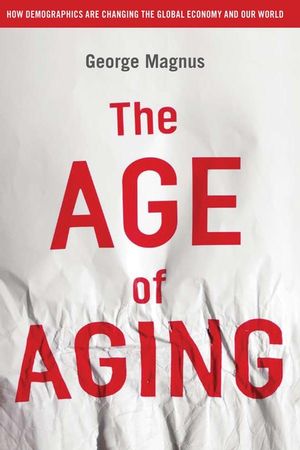EVERY age has its big demographic scares. In 1798, when the world’s population was about 1 billion, Thomas Malthus published his “Essay on the Principle of Population”, predicting that, thanks to mankind’s enthusiastic procreation habits, by the middle of the 19th century there would no longer be enough food to go round. In the event, people happily continued both to multiply and to eat.
Indeed, in the early part of the 20th century, when the world’s population had grown to double that at Malthus’s time, fears started to run in the opposite direction: that people were having too few babies and mankind was in danger of dying out. The super-abundant baby-boomer generation after the second world war gave the lie to that. But by 1972 the argument had come full circle again. The Club of Rome, a global think-tank, produced a doom-laden report, “The Limits to Growth”, which claimed that within less than a century a mixture of man-made pollution and resource shortages would once again cause widespread population decline. What the think-tankers had not reckoned with was the green revolution. By the start of the new millennium the world’s total population had reached 6 billion. It is now expected to rise to nearly 9 billion by 2050.
........By 2050 the world will have about 2 billion people aged over 60, three times as many as today. In parts of the rich world, mainly Japan and western Europe, that age group already makes up nearly a quarter of the population. By 2050 their share will rise to 30-40%, and even in the—much younger—developing world it will go up to 25-30%.
......
There is no doubt that global greying will happen. Many of the people that will contribute to it have already been born, so short of some catastrophe that kills off large numbers of people, or some Viagra-fuelled leap in birth rates, population numbers and age composition can be predicted with fair accuracy for decades ahead. What remedies should be adopted it is much harder to say.
The pundits who have pronounced on this over the past decade or so fall roughly into three categories: those who claim that this is just another Malthusian scare story and can be sorted out with a few tweaks to retirement ages and pension policies; those who preach gloom and doom (a meltdown in asset prices, poverty in old age, health-care rationing and even intergenerational warfare as the young and the old slug it out for scarce resources); and those in the middle, who crunch the numbers and try to come up with sensible ideas to make their effect less grim.
This book falls firmly into the last category. It provides a clear, sober and well-written analysis of the problem, both in developed and developing countries, and runs through the options for heading off the worst effects. The biggest part of the solution lies in expanding the shrinking band of workers, mainly by getting people to retire later and persuading even more women to take up paid employment. At the same time more productivity will have to be squeezed out of the labour force that remains. And people will have to be persuaded to save a lot more for their old age.
Read also, John Wiley's review of the book.

3 comments:
Hmmm... great stuff; stuff that make me regret NOT taking-up economics during my A-Levels.
Mat B
Thank you for leaving a comment. I don't believe that you have missed anything by not immersing yourself with economics per se. If the high standard of your penmanship is anything to go by, there is little doubt that if you wanted to, you will have quite a profound mastery of the subject in no time at all, thus leaving the rest of us mere mortals flapping in the wind :D
A post at 3.51am requires a comment.
In fact that sort of sacrificial dedication on a matter close to the heart of those with white hairs (;P) requires more than a comment. National recognition comes to mind. Indeed that was exactly what happened hours later. One of the main press carried front page and full coverage on the new pension benefits for retirees.
What was however painful to note if one reads between the lines is this:
the policy seems to run on this logic:
- get the retired to work longer;
- since one works only when fit, working requires one to be fit and therefore saves on medical costs otherwise subsidized;
- furthermore working adds money into the market on the spend-more basis, and being de-retired will also...
- reduce earlier disbursement of pension and gratuity funds.
In a nutshell the bottomline seems to say money is in short supply.
So what is one to also do about the young school-leavers and graduates in need of jobs?
One wonders what will be the scenario when we become net oil importer. Things are going to cost more so how to spend? Govt is going to have less money so how to subsidize? Industries are going to be less competitive so where to find jobs?
This calls for another teh-tarik, kau-kau.
Post a Comment